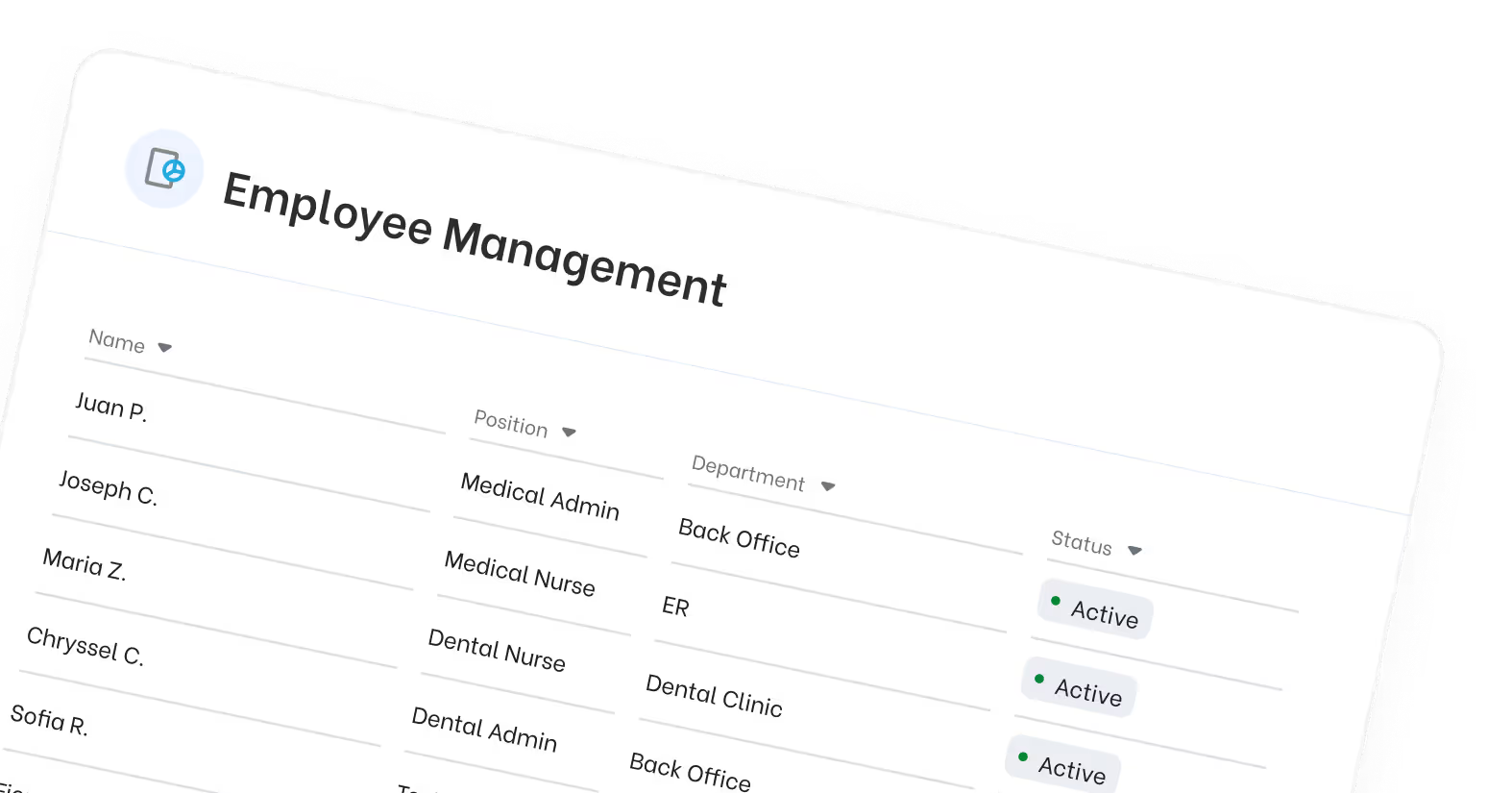How Virtual Receptionists Are Changing Healthcare Customer Service

Many medical practices face the same pressure: keeping up with patient inquiries, managing scheduling appointments, and protecting patient information while delivering consistent, high-quality care. HIPAA-compliant virtual receptionists help solve these issues by answering calls, confirming appointments, handling prescription refills, and keeping workflows smooth and secure.
This article explores how virtual receptionists are changing healthcare customer service by improving communication, lowering operational costs, and supporting your team with day-to-day administrative tasks. Whether you’re a small clinic or a growing healthcare provider, you’ll see how the exemplary support service can reduce pressure and enhance the patient experience without the cost or complexity of hiring another in-house receptionist.
Key Takeaways
- Virtual receptionists leverage advanced technologies to enhance healthcare customer service, streamlining operations and improving patient communication.
- They provide 24/7 availability, ensuring timely responses to patient inquiries and supporting telehealth services, significantly enhancing patient care.
- Virtual receptionists offer substantial cost savings for healthcare practices by automating administrative tasks. They allow providers to focus more on patient care while ensuring HIPAA compliance.
Why Virtual Receptionists Are Becoming Essential in Healthcare
The pressure on medical practices to stay responsive, compliant, and available around the clock has never been higher. Patients expect real-time updates and immediate access, even outside office hours. At the same time, your front desk is already juggling phone calls, intake, scheduling, and follow-ups.
A virtual receptionist steps in to manage that load. Using secure cloud-based tools, they handle calls, route inquiries, confirm appointments, and assist with intake, all remotely, without needing space in your clinic.
This isn’t about replacing your staff. It’s about adding a dedicated support layer that never calls in sick, takes a lunch break, or misses a late-night voicemail.
This extra layer can keep things running smoothly without the cost of another full-time hire, especially for small and mid-size practices. For growing teams, it means you can scale without losing responsiveness.
When your virtual receptionist is HIPAA-trained and equipped with encrypted tools, you’re not trading convenience for compliance. You’re building a system that meets patient expectations and protects your business.
Improving Patient Communication Without Adding Work to Your Plate
Managing patient communication takes time, but delays and missed messages cost more.
A virtual receptionist keeps things moving without adding to your team’s workload. Calls are answered quickly, routed correctly, and documented in real-time. Patients don’t wait on hold; no one’s wondering if a voicemail was missed or forgotten.
Your receptionist can also confirm appointments, send reminders, and follow up after visits. This consistent communication helps reduce no-shows and gives patients more confidence in your process. Patients who feel heard are more likely to stay engaged in their care and return for follow-ups.
Many practices use virtual receptionists to support post-visit outreach, checking in, clarifying instructions, or sharing the next steps. It’s a small gesture that makes a big difference. And since all communication follows HIPAA protocols, there’s no added risk.
Whether your team is overwhelmed or just ready to deliver a better experience, a virtual assistant helps you stay proactive without taking time away from your core focus.
How 24/7 Coverage Impacts Patient Satisfaction
With a virtual receptionist available around the clock, you can provide continuous coverage without burning out your team or extending your hours. Patients get real-time responses to appointment requests, urgent questions, and basic inquiries, even on weekends and holidays.
That level of responsiveness builds trust.
It shows patients you’re accessible, even when your physical doors are closed. It also helps manage expectations. A patient who speaks to a real person at 9 p.m. doesn’t feel the need to leave multiple voicemails or call back repeatedly.
24/7 coverage also supports telehealth. Virtual receptionists can guide patients through account setup, walk them through technical issues, and confirm details before virtual appointments. That small layer of guidance helps make remote care feel personal and professional.
This round-the-clock support adds value for physicians without more hours at the desk. You don’t need to worry about missed calls, bottlenecks, or scheduling gaps. Your Virtual Assistant handles it, and your patients feel seen.
Streamlining Admin Tasks While Reducing Overhead
Administrative work adds up fast; call handling, appointment confirmations, insurance checks, and patient reminders take time away from care. That’s where a virtual assistant can make an immediate impact.
By automating and offloading routine tasks, a virtual assistant for physicians helps your staff stay focused on what matters most. Your Virtual Assistant can manage appointment queues, verify insurance details, and send follow-ups without you having to supervise every step.
This shift doesn’t just save time. It lowers costs. Many practices see a noticeable drop in overhead by replacing in-house administrative labor with virtual support. Without needing desk space, benefits, or additional equipment, your receptionist works quietly in the background, keeping things running without interruption.
Your front office keeps moving even during peak hours or unexpected staff absences. Calls are answered, calendars are updated, and patients receive the attention they expect. This kind of support allows you to do more with less.
Choose the Right Virtual Assistant for Your Practice Needs
Before integrating a virtual receptionist into your workflow, define what you need support with. Then, evaluate providers based on their ability to meet your operational, technical, and compliance requirements.
Here’s what to look for:
- Healthcare experience: Choose a service that understands the tone, urgency, and privacy standards unique to medical practices, not just generic customer service.
- HIPAA compliance: Ensure the receptionist uses secure communication tools and signs a Business Associate Agreement. Ask how they handle protected health information daily.
- Scheduling and call-handling skills: Look for someone who can manage calendars, coordinate follow-ups, and prioritize urgent calls without skipping details.
- Scalability and flexibility: Your needs will change. The right provider will grow with you, whether you’re adding staff, locations, or more service hours.
- Clear documentation: Every interaction should be logged accurately and sent to the right system or staff member. Look for a process that integrates smoothly with your current setup.
The right virtual assistant for physicians isn’t just an extra set of hands; it’s someone who understands your goals and helps you move through the day with fewer interruptions and more clarity.
Take the Next Step with MedVirtual
You don’t need to handle every call, every follow-up, or every scheduling detail yourself. A trusted virtual receptionist gives you time, consistency, and peace of mind without sacrificing care quality or patient trust.
MedVirtual provides HIPAA-compliant virtual receptionist services designed for modern practices. Whether you’re managing overflow, building a telehealth workflow, or improving the efficiency of your front office, we can help you find the proper support.
Each virtual assistant is trained to work directly with physicians, helping you streamline tasks and communicate clearly with your patients. It’s support built around your needs, not just answering the phone but protecting your time and reputation.
Ready to improve your patient experience while reducing administrative stress?
Contact MedVirtual today to discover how a virtual assistant can make a difference in your practice.






